
The Tranquil Shores of Praia do Tarrafal
Nestled on the northern coast of Santiago Island, Praia do Tarrafal is a slice of paradise in Cabo Verde. Known for its crystal-clear waters and golden sandy beaches, Tarrafal is the perfect destination for those seeking relaxation and natural beauty. The calm and warm waters make it an excellent spot for swimming, snorkeling, and other water activities. Surrounded by lush palm trees, the beach offers a picture-perfect setting for sunbathing and picnicking. Beyond the beach, the town of Tarrafal boasts a rich history and culture. The local market is a bustling hub where you can find fresh produce, seafood, and artisanal crafts. The nearby Tarrafal Concentration Camp, now a museum, offers a poignant glimpse into the island's past and is a must-visit for history enthusiasts. Exploring the local cafes and restaurants, you will relish the flavors of traditional Cabo Verdean cuisine, with its vibrant spices and fresh ingredients. For the adventurous, the surrounding hills and trails provide excellent opportunities for hiking and enjoying panoramic views of the coastline. The friendly locals and laid-back atmosphere of Tarrafal make it a welcoming and serene retreat, perfect for unwinding and experiencing the authentic charm of Cabo Verde.
Local tips in Praia do Tarrafal
- Visit early in the morning to enjoy the beach before it gets crowded.
- Bring cash as some local vendors and markets may not accept cards.
- Try the local catch of the day at seaside restaurants for a fresh and authentic meal.
- Wear comfortable shoes if planning to hike the surrounding hills.
- Learn a few basic phrases in Portuguese or Creole to better connect with the locals.
The Tranquil Shores of Praia do Tarrafal
Nestled on the northern coast of Santiago Island, Praia do Tarrafal is a slice of paradise in Cabo Verde. Known for its crystal-clear waters and golden sandy beaches, Tarrafal is the perfect destination for those seeking relaxation and natural beauty. The calm and warm waters make it an excellent spot for swimming, snorkeling, and other water activities. Surrounded by lush palm trees, the beach offers a picture-perfect setting for sunbathing and picnicking. Beyond the beach, the town of Tarrafal boasts a rich history and culture. The local market is a bustling hub where you can find fresh produce, seafood, and artisanal crafts. The nearby Tarrafal Concentration Camp, now a museum, offers a poignant glimpse into the island's past and is a must-visit for history enthusiasts. Exploring the local cafes and restaurants, you will relish the flavors of traditional Cabo Verdean cuisine, with its vibrant spices and fresh ingredients. For the adventurous, the surrounding hills and trails provide excellent opportunities for hiking and enjoying panoramic views of the coastline. The friendly locals and laid-back atmosphere of Tarrafal make it a welcoming and serene retreat, perfect for unwinding and experiencing the authentic charm of Cabo Verde.
When is the best time to go to Praia do Tarrafal?
Iconic landmarks you can’t miss
The Pier of Santa Maria
Discover the vibrant charm of the Pier of Santa Maria, a coastal attraction blending stunning views with local culture and lively activities in Cabo Verde.
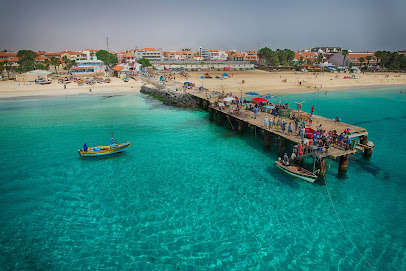
Tarrafal Beach
Explore the idyllic Tarrafal Beach in Cabo Verde, where golden sands meet crystal-clear waters, offering a perfect blend of relaxation and adventure.
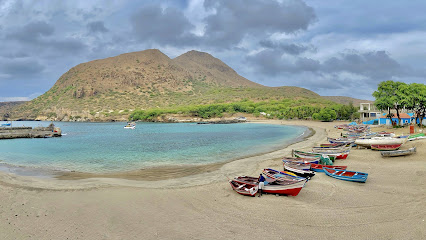
Discover santiago island
Discover the stunning landscapes, rich cultural heritage, and vibrant local life of Santiago Island, Cape Verde's largest and most enchanting destination.
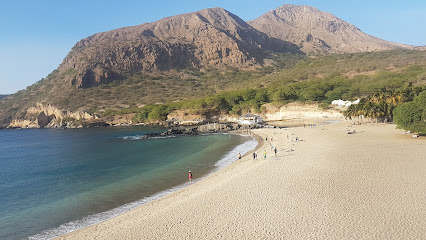
Pelourinho
Discover the rich cultural tapestry of Pelourinho, Cape Verde's historic gem, where colonial charm meets vibrant local life.
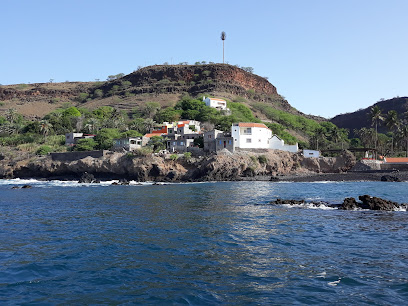
Serra Malagueta Natural Park (Santiago)
Explore the stunning Serra Malagueta Natural Park in Santiago, Cape Verde, where lush landscapes and rich biodiversity await every nature lover.
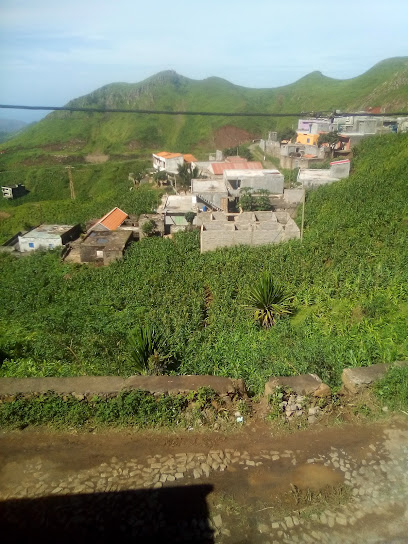
Presidential Palace
Discover the grandeur of the Presidential Palace in Praia, a stunning landmark showcasing Cape Verde's rich history and culture.
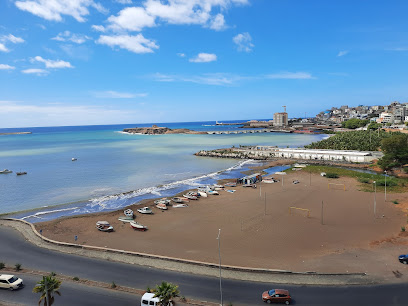
Lighthouse Dona Maria Pia
Explore the historical Lighthouse Dona Maria Pia in Praia, a stunning landmark showcasing maritime heritage and breathtaking coastal views.
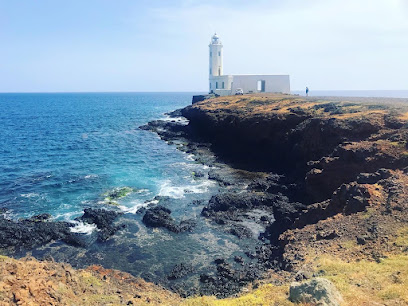
Casa Strela B&B
Experience the charm of Tarrafal at Casa Strela B&B, where comfort meets Cape Verdean hospitality in a stunning coastal setting.

Campo De Concentração
Explore the profound history of Cabo Verde at Campo De Concentração, a museum dedicated to the island's colonial past and cultural heritage.
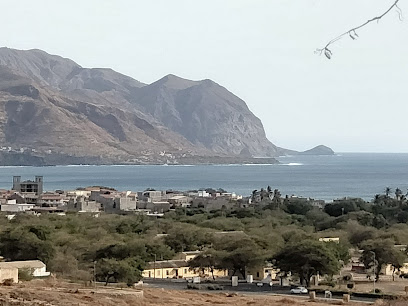
Tarrafal 360 tour
Explore Tarrafal's stunning landscapes and rich history with the immersive Tarrafal 360 tour, perfect for adventurous tourists seeking unique experiences.
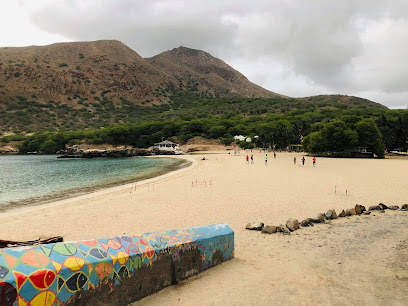
Ponta d'Atum
Discover the breathtaking coastal beauty and vibrant culture of Ponta d'Atum in Tarrafal, Cabo Verde—a perfect escape for nature lovers and beach enthusiasts.
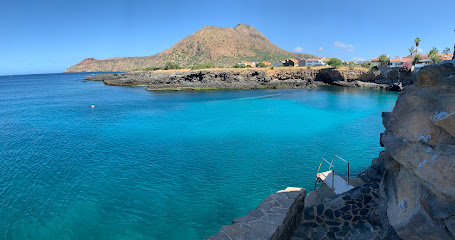
Restaurant Casa Strela
Experience the authentic flavors of Cape Verde at Restaurant Casa Strela, a culinary gem in Tarrafal with stunning coastal views.
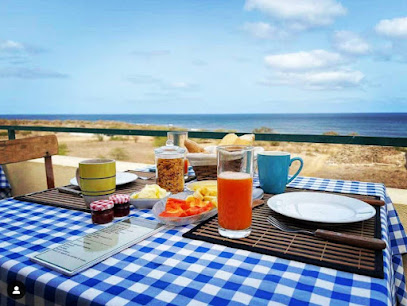
la barque de Sety
Explore the stunning views and rich culture at La Barque de Sety, a top tourist attraction in Ribeira da Barca, Cape Verde.
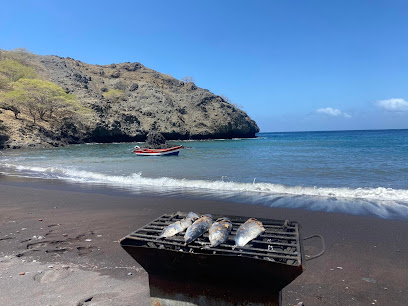
Baía de Tarrafal
Experience the soothing beauty of Baía de Tarrafal, a hidden gem in Cape Verde with crystal-clear waters, vibrant culture, and stunning landscapes.
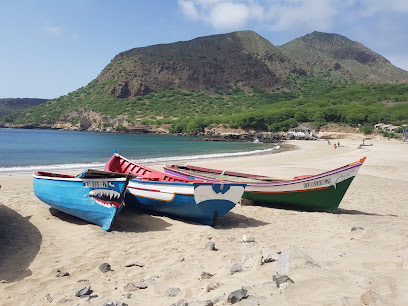
Tarrafal Square
Experience the natural beauty and local culture at Tarrafal Square, a peaceful park in Cape Verde, perfect for relaxation and community gatherings.
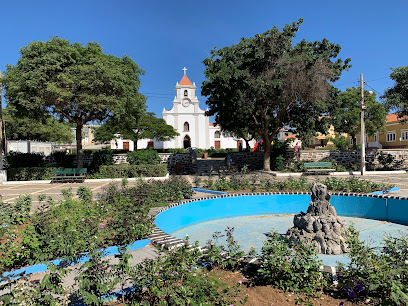
Unmissable attractions to see
Fundação Amílcar Cabral
Explore the rich cultural heritage of Cape Verde at Fundação Amílcar Cabral, a vibrant center dedicated to art, history, and community engagement.
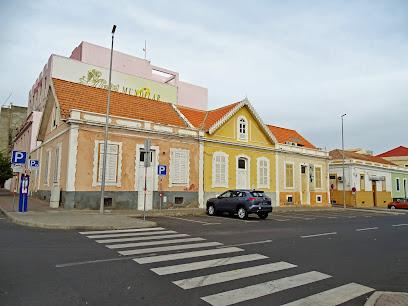
Tarrafal Square
Explore the serene beauty of Tarrafal Square, a peaceful park perfect for relaxation and cultural experiences in Tarrafal, Cape Verde.
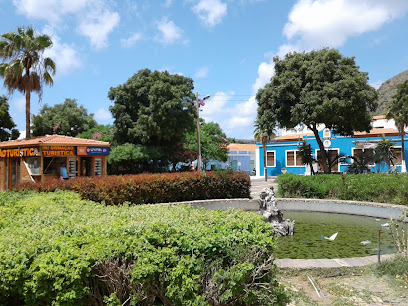
Memorial Amílcar Cabral
Explore the life and legacy of Amílcar Cabral, a revolutionary leader and national hero of Cape Verde, at this inspiring memorial.
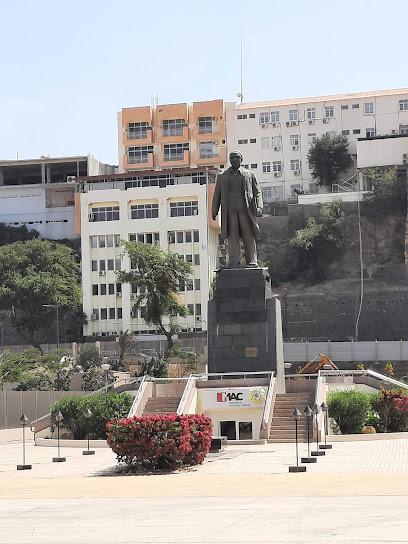
Sala museu Amílcar Cabral
Discover the inspiring legacy of Amílcar Cabral at Sala Museu, a museum celebrating Cape Verde's history and revolutionary spirit.
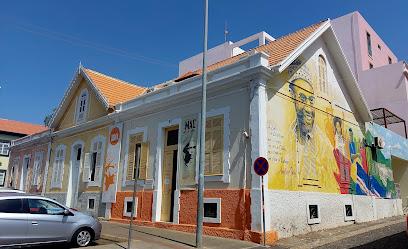
Essential places to dine
Restaurant Alto Mira
Discover exquisite seafood and delightful pizzas at Restaurant Alto Mira in Tarrafal - a culinary haven in Cape Verde.
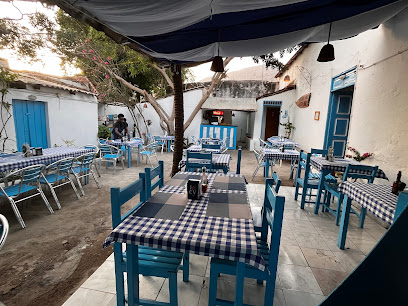
Restaurante Maracuja
Experience authentic Cape Verdean cuisine at Restaurante Maracuja in Tarrafal – where every dish tells a story.
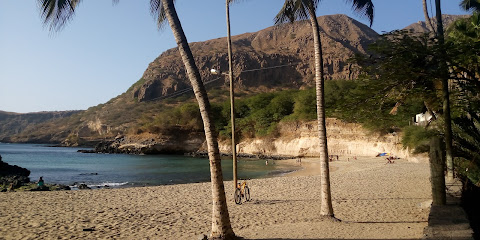
Restaurante Cegonha
Experience authentic Cape Verdean cuisine at Restaurante Cegonha in Tarrafal—where every meal is a celebration of local flavors and culture.
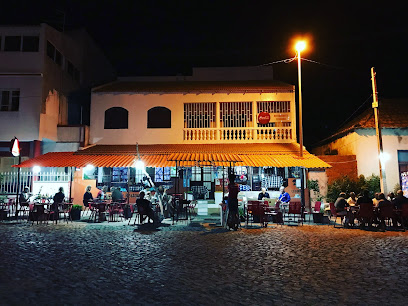
Restaurante Sol e Luna
Experience authentic Cape Verdean cuisine at Restaurante Sol e Luna in Tarrafal, where stunning views meet flavorful dishes.
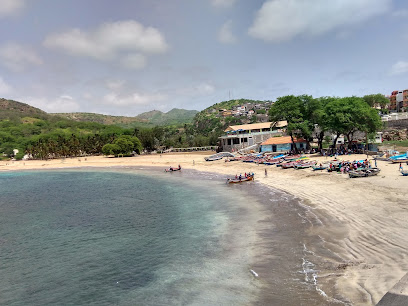
Restaurante Esplanada Bellini
Discover authentic Cape Verdean cuisine at Restaurante Esplanada Bellini in Tarrafal—where every meal is a celebration of local flavors.
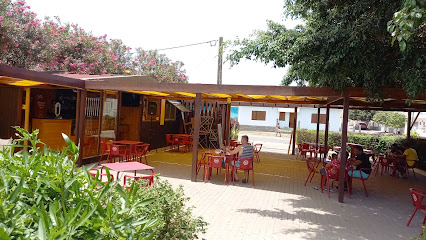
Brisa
Discover Brisa in Tarrafal for an authentic taste of Cape Verdean cuisine amidst stunning coastal views.
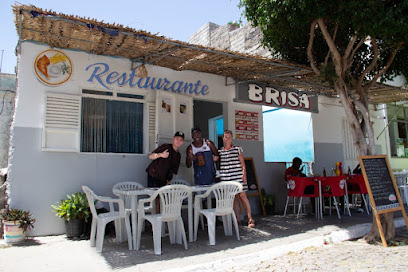
Mira Mar chez Mama
Experience authentic Cape Verdean flavors at Mira Mar chez Mama in Tarrafal – where every meal tells a story.
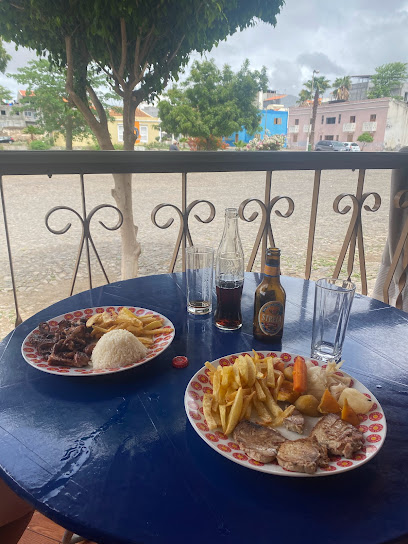
Mangui Baxu
Experience authentic Cape Verdean cuisine at Mangui Baxu in Tarrafal – where every dish tells a story.
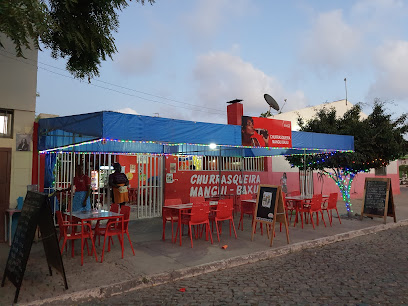
Restaurant Mar di Baixo
Discover authentic Cape Verdean flavors at Restaurant Mar di Baixo in Tarrafal—your gateway to delicious local cuisine at affordable prices.
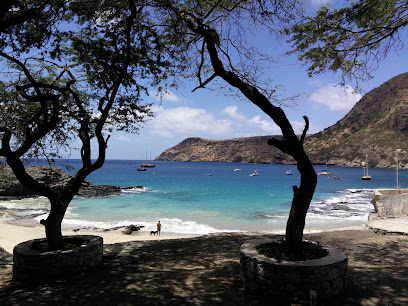
Restaurant Casa Strela
Discover the rich flavors of Cape Verde at Restaurant Casa Strela in Tarrafal – where local cuisine meets warm hospitality.
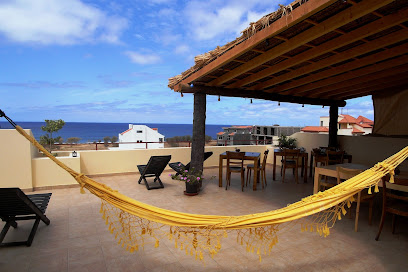
Restaurante Baia Verde
Experience authentic Cape Verdean cuisine at Restaurante Baia Verde in Tarrafal – where every meal tells a story.
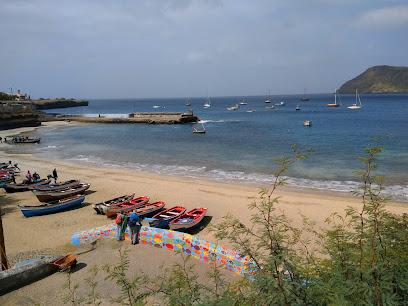
Restaurante VistaMare
Experience authentic Cape Verdean cuisine with stunning ocean views at Restaurante VistaMare in Tarrafal.
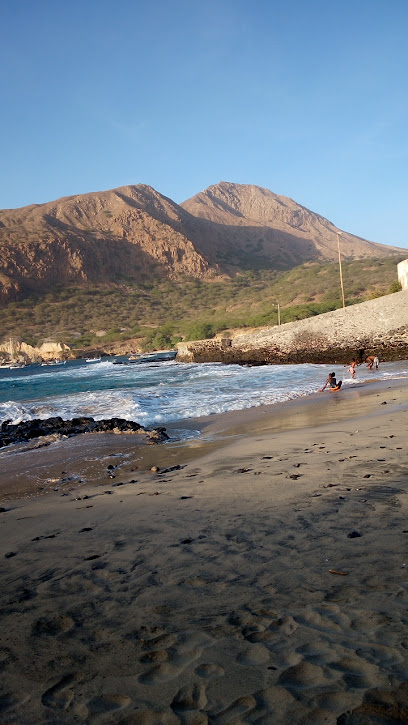
Bullet Beach
Experience tranquility at Bullet Beach – where soft sands meet crystal-clear waters in a serene coastal paradise.
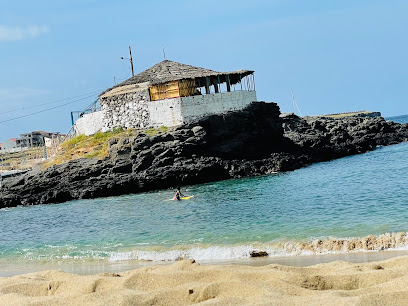
Restaurante Búzio
Experience authentic Cape Verdean cuisine at Restaurante Búzio in Tarrafal – where fresh flavors meet stunning coastal views.
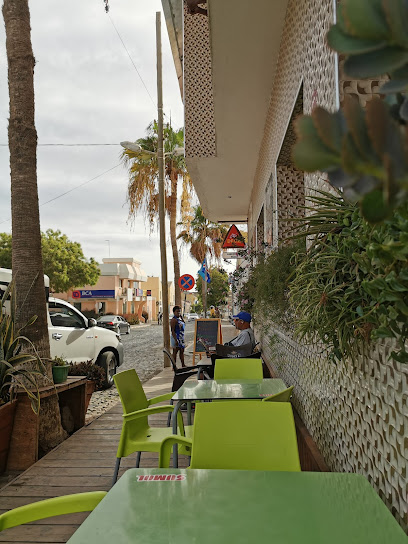
Esplanada Alto-Estrada
Experience the vibrant flavors and stunning views at Esplanada Alto-Estrada in Tarrafal - your gateway to authentic Cabo Verdean cuisine.
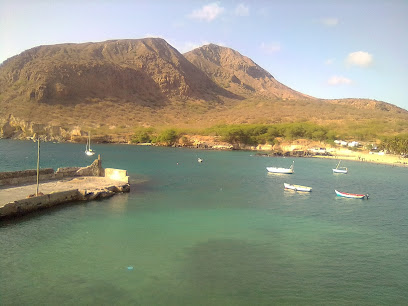
Markets, malls and hidden boutiques
Tarrafal Municipal Market
Discover the vibrant Tarrafal Municipal Market, a cultural haven of local delicacies, handcrafted goods, and the lively spirit of Cape Verde.
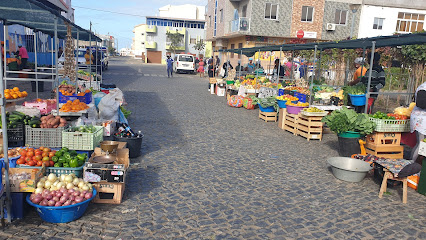
Padaria Bakery Café
Discover the flavors of Tarrafal at Padaria Bakery Café, where fresh pastries and local delights await in a cozy atmosphere.
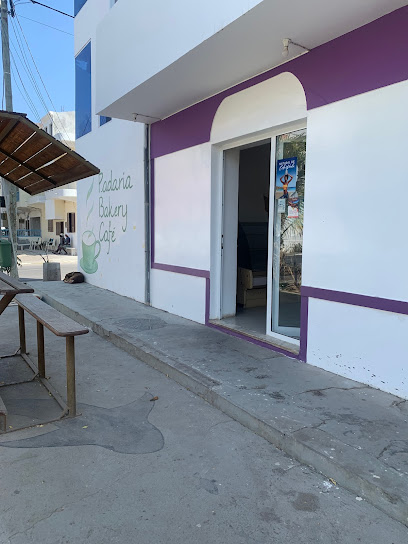
Padaria Lu
Experience the authentic flavors of Cape Verde at Padaria Lu, a local bakery in Tarrafal known for its delicious baked goods and welcoming atmosphere.
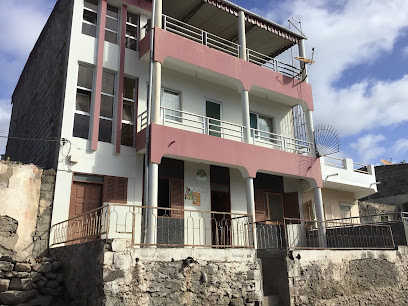
Camilo's bakery
Experience the rich flavors of Cape Verde at Camilo's Bakery, where delightful pastries and local charm await every tourist.

Tarrafal Pharmacy
Discover health and wellness essentials at Tarrafal Pharmacy, your reliable partner during your tropical adventures in Cape Verde.
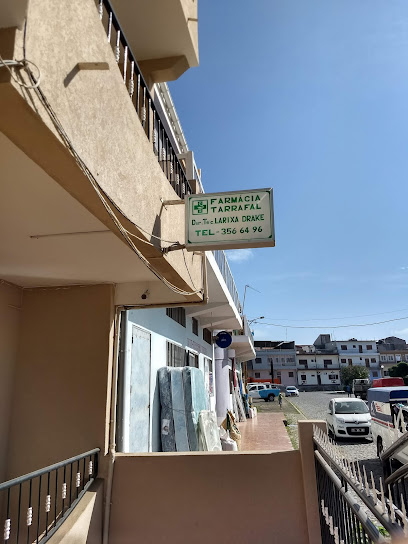
Cantinho da Pesca
Discover Tarrafal's fishing culture at Cantinho da Pesca, where local expertise meets a charming coastal shopping experience.
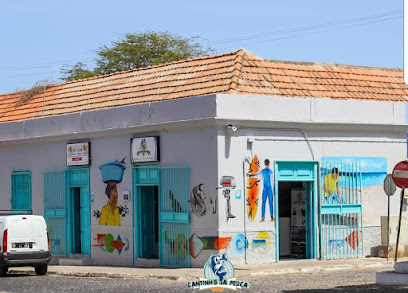
Tata Supermarket
Explore local flavors at Tata Supermarket in Tarrafal, your one-stop shop for fresh produce and everyday essentials in Cape Verde.
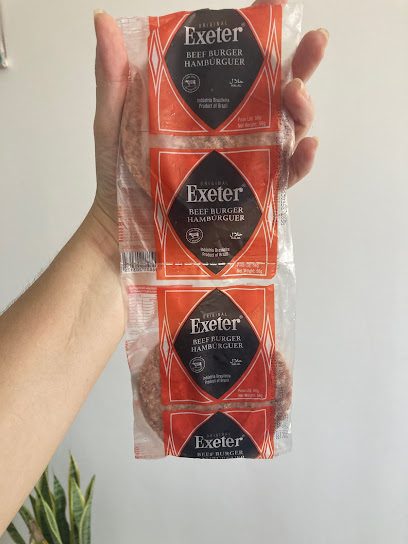
Sexy Adventure
Discover unique men's and women's fashion at Sexy Adventure in Tarrafal, where style meets local culture.
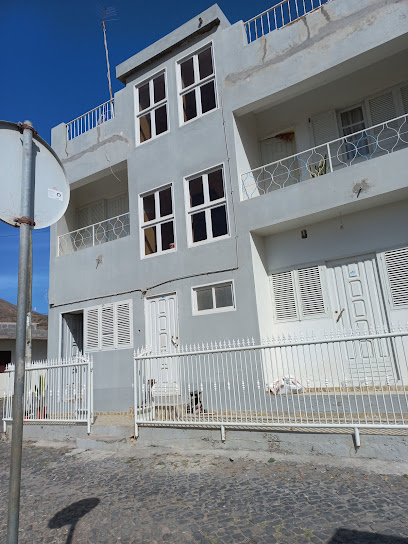
Mercado Municipal Velho
Explore Mercado Municipal Velho in Tarrafal for a vibrant market experience featuring fresh produce, local crafts, and authentic Cape Verdean culture.
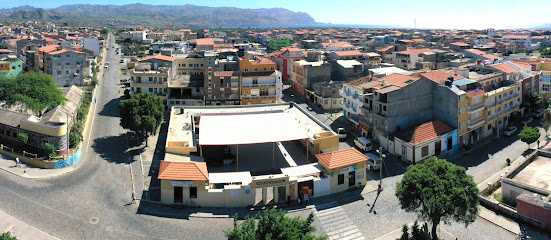
Sol di Cabo Verde
Experience the essence of Cape Verde at Sol di Cabo Verde, Tarrafal's beloved coffee shop, where every sip tells a story.
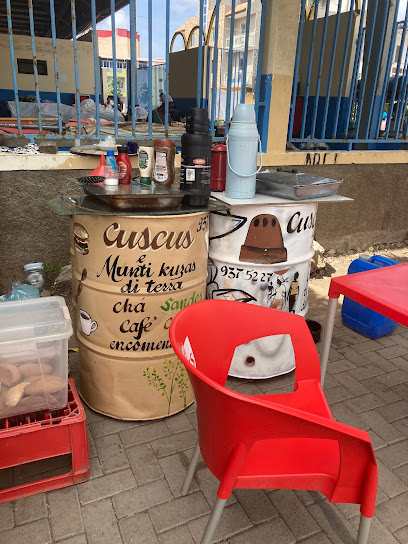
Multiserviço Santo Amaro
Explore the artistry of Cape Verde at Multiserviço Santo Amaro, a premier craft store in Tarrafal offering unique handmade treasures.

Mini Mercado Dilma
Discover local flavors and everyday essentials at Mini Mercado Dilma, Tarrafal's beloved grocery store offering fresh produce and unique Cape Verdean goods.
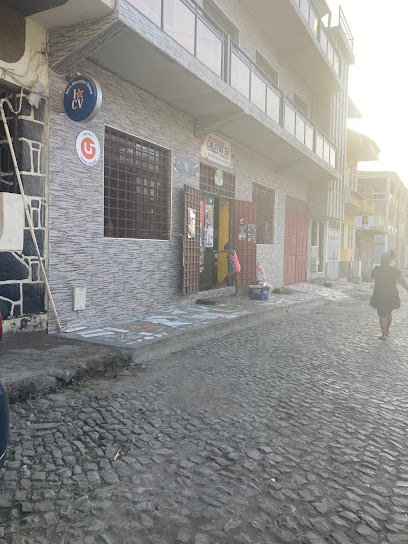
Xica
Explore the flavors of Cape Verde at Xica, a local grocery store in Tarrafal offering fresh produce, local delicacies, and a welcoming atmosphere.
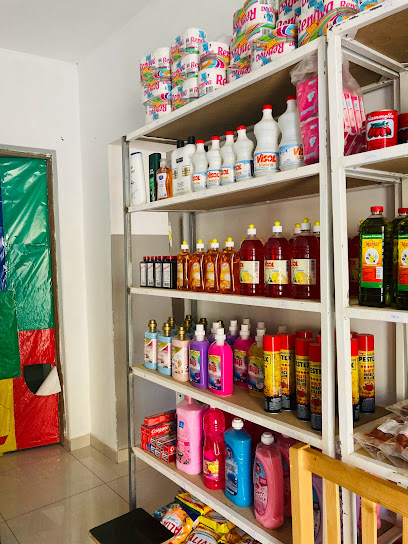
Gelateria Olá Tarrafal
Discover the sweet side of Tarrafal at Gelateria Olá, where local flavors meet delightful ice cream creations for an unforgettable treat.

Loja Amizade
Experience the essence of Cape Verdean culture at Loja Amizade, Tarrafal's premier department store for unique finds and local treasures.

Essential bars & hidden hideouts
Restaurant Alto Mira
Discover the flavors of Cape Verde at Restaurant Alto Mira, offering fresh seafood and pizzas in a welcoming atmosphere.
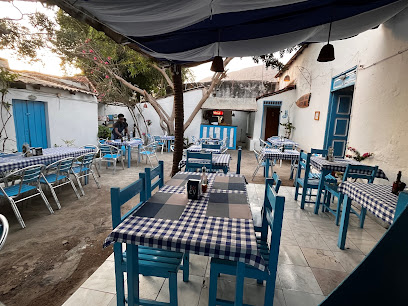
Restaurante Maracuja
Discover the flavors of Cape Verde at Restaurante Maracuja, where fresh ingredients and local traditions create an unforgettable dining experience.
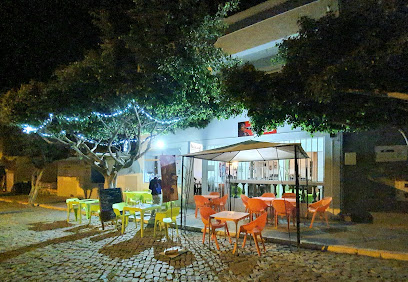
Restaurante Cegonha
Explore the flavors of Tarrafal at Restaurante Cegonha, where local and international cuisine meets a warm and inviting atmosphere.
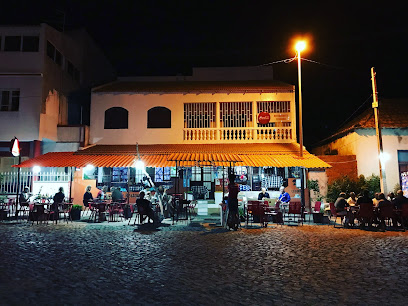
Restaurante Esplanada Bellini
Experience the vibrant flavors of Cape Verde at Restaurante Esplanada Bellini, nestled in the picturesque town of Tarrafal.
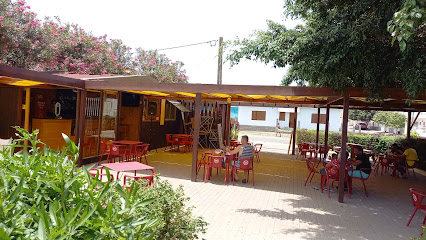
Brisa
Experience the authentic taste of Cape Verde at Brisa, a delightful restaurant in Tarrafal that offers delicious local cuisine and stunning ocean views.
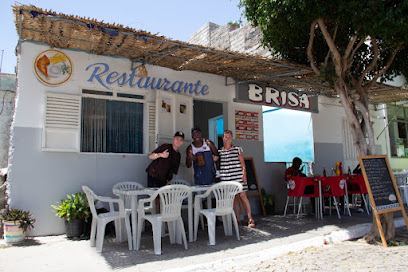
Kabungo Beach Bar Tarrafal
Experience the ultimate beachside relaxation at Kabungo Beach Bar Tarrafal, where stunning views and refreshing cocktails await.
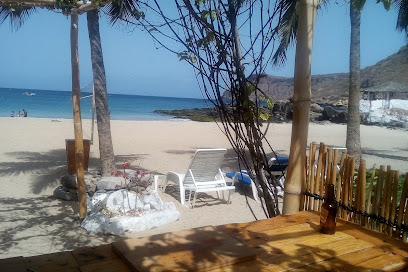
BIG BAR
Discover the lively ambiance and exceptional hospitality at BIG BAR in Ribeira da Prata, where every night is a celebration of local culture and good company.
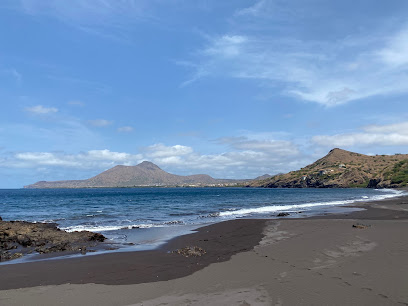
Bar Restaurante Baia Do Tarrafal
Experience the authentic flavors of Cape Verde at Bar Restaurante Baia Do Tarrafal, where local cuisine meets stunning ocean views.
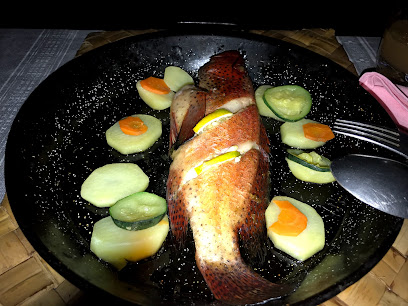
Restaurante Alcatraz
Discover the culinary delights of Restaurante Alcatraz in Tarrafal, where fresh seafood meets stunning coastal views in an authentic Cape Verdean dining experience.
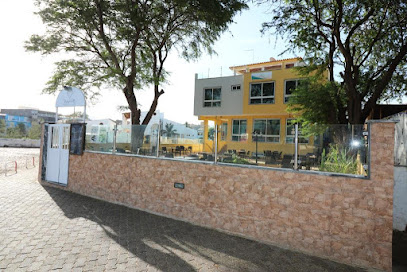
Pontona
Experience the vibrant atmosphere and stunning views at Pontona, Tarrafal's charming bar that embodies Cape Verdean culture.
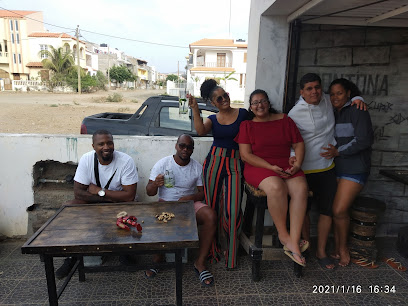
Jamaica Restaurant Bar
Discover the taste of Cape Verde at Jamaica Restaurant Bar in Tarrafal, a vibrant culinary gem serving fresh, local dishes in a welcoming atmosphere.
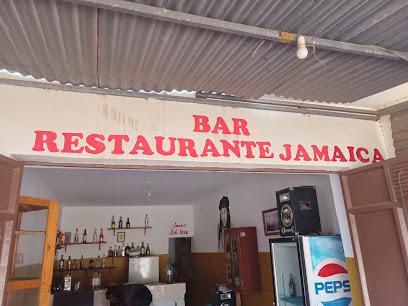
Diveсenter Bar
Experience the laid-back charm of Divecenter Bar in Tarrafal, where refreshing drinks and stunning coastal views create unforgettable moments.
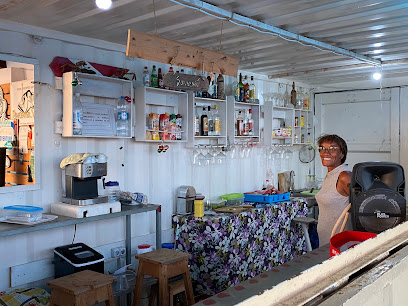
Bar Tarrafal Vibes
Discover the vibrant nightlife of Tarrafal at Bar Tarrafal Vibes, where local culture and flavors come alive in a cozy atmosphere.
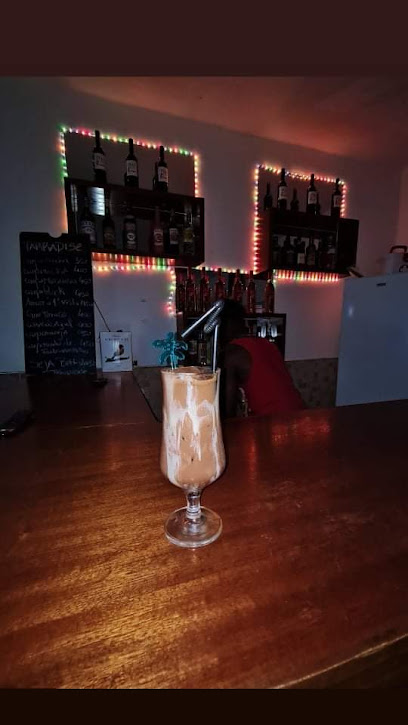
Ponta Branca bar restaurante
Discover the flavors of Cape Verde at Ponta Branca, a top dining destination in Tarrafal offering fresh local cuisine and stunning views.
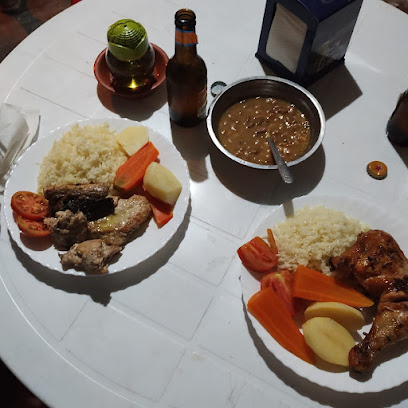
Local Phrases about Praia do Tarrafal
-
- HelloOlá
[oh-LAH] - GoodbyeAdeus
[ah-DAY-oosh] - YesSim
[seem] - NoNão
[now] - Please/You're welcomePor favor/De nada
[pour fa-VOR/day NAH-da] - Thank youObrigado/Obrigada
[oh-bree-GAH-do/oh-bree-GAH-da] - Excuse me/SorryCom licença/Desculpa
[com lee-SEN-sah/des-KOOL-pah] - How are you?Como está?
[koh-moh es-TAH] - Fine. And you?Estou bem. E você?
[es-TOH bayn/eh voh-SAY] - Do you speak English?Fala inglês?
[FAH-lah een-GLEZ] - I don't understandNão entendo
[now en-TEN-doh]
- HelloOlá
-
- I'd like to see the menu, pleaseGostaria de ver o menu, por favor
[gos-TAH-ree-ah deh ver oo MEN-oo, pour fa-VOR] - I don't eat meatNão como carne
[now KOH-moh KAR-neh] - Cheers!Saúde!
[sow-OOH-jay] - I would like to pay, pleaseGostaria de pagar, por favor
[gos-TAH-ree-ah deh pah-GAR, pour fa-VOR]
- I'd like to see the menu, pleaseGostaria de ver o menu, por favor
-
- Help!Socorro!
[soh-KOH-roh] - Go away!Vá embora!
[vah ehm-BOH-rah] - Call the Police!Chame a polícia!
[SHAH-meh ah poh-LEE-see-ah] - Call a doctor!Chame um médico!
[SHAH-meh oom MEH-dee-koh] - I'm lostEstou perdido/perdida
[es-TOH pehr-DEE-doo/pehr-DEE-dah] - I'm illEstou doente
[es-TOH doh-EN-te]
- Help!Socorro!
-
- I'd like to buy...Queria comprar...
[kweh-REE-ah kohm-PRAR] - I'm just lookingEstou só a ver
[es-TOH soh ah ver] - How much is it?Quanto custa?
[KWAHN-toh KOOSH-tah] - That's too expensiveIsso é muito caro
[EE-soh eh MWEET-oo KAH-ro] - Can you lower the price?Pode baixar o preço?
[POH-deh BAI-shar oo PREH-soh]
- I'd like to buy...Queria comprar...
-
- What time is it?Que horas são?
[kay OH-ras sow] - It's one o'clockSão uma hora
[sow OO-mah OH-rah] - Half past (10)Dez e meia
[dehz ee MAY-ah] - MorningManhã
[mahn-YAH] - AfternoonTarde
[TAR-deh] - EveningNoite
[NOY-teh] - YesterdayOntem
[on-TEM] - TodayHoje
[OH-zheh] - TomorrowAmanhã
[ah-mahn-YAH] - 1Um
[OOM] - 2Dois
[doyss] - 3Três
[tresh] - 4Quatro
[KWAH-troh] - 5Cinco
[SIN-koh] - 6Seis
[sayss] - 7Sete
[SET] - 8Oito
[OY-too] - 9Nove
[NO-vay] - 10Dez
[dehz]
- What time is it?Que horas são?
-
- Where's a/the...?Onde fica um/o...?
[ON-deh FEE-kah oom/oh] - What's the address?Qual é o endereço?
[kwahl eh oo ehn-DEH-reh-soh] - Can you show me (on the map)?Pode mostrar-me (no mapa)?
[POH-deh moh-SHAR-meh (noo MAH-pah)] - When's the next (bus)?Quando é o próximo (autocarro)?
[KWAHN-doh eh oo PROH-ksee-moh (ow-toh-KAH-roo)] - A ticket (to ....)Um bilhete (para ....)
[oom bee-LYET (PAH-rah)]
- Where's a/the...?Onde fica um/o...?
History of Praia do Tarrafal
-
The town of Tarrafal, located on the northern coast of Santiago Island in Cabo Verde, was founded in the late 19th century. Its strategic location on the coast made it an important fishing and trading hub for the local communities. The town quickly grew as a result of its proximity to rich fishing grounds and its role in maritime trade.
-
One of the most poignant historical sites in Tarrafal is the Tarrafal Concentration Camp, also known as Campo da Morte Lenta or 'Camp of the Slow Death.' Established by the Portuguese colonial government in 1936, the camp was initially used to imprison political opponents and anti-colonial activists from Portugal and its colonies. Over the years, it became infamous for its harsh conditions and the many prisoners who died there. The camp was closed in 1954 and later turned into a museum to commemorate the victims and educate visitors about this dark chapter in Cabo Verde's history.
-
Fishing has always been a central part of life in Tarrafal. The town's coastal location provides access to abundant marine resources, and fishing has been the primary occupation for many of its residents for generations. Traditional fishing techniques, such as using hand-crafted nets and small wooden boats, are still practiced today. The town’s fish market is a bustling place where locals and visitors can experience the vibrant culture and commerce of the fishing community.
-
Tarrafal is home to numerous cultural festivals that celebrate the town's heritage and community spirit. One of the most notable is the annual Festa de São Francisco, held in October, which honors the town's patron saint, Saint Francis of Assisi. The festival includes religious ceremonies, parades, music, dance, and local food, providing a vibrant display of the town's cultural traditions and bringing together residents and visitors in celebration.
-
The town of Tarrafal is dotted with remnants of its colonial past. Many buildings reflect Portuguese architectural styles, with their whitewashed walls, red-tiled roofs, and ornate balconies. These structures offer a glimpse into the town's history under Portuguese rule and provide a picturesque backdrop for exploring the narrow streets and bustling marketplaces.
-
In recent years, Tarrafal has become a popular destination for tourists seeking natural beauty and adventure. The town's pristine beaches, such as Praia do Tarrafal, are renowned for their clear waters and stunning landscapes. Nearby, the Serra Malagueta mountain range offers hiking trails with breathtaking views of the island. The combination of historical significance and natural attractions makes Tarrafal a unique and compelling destination for travelers.
Praia do Tarrafal Essentials
-
Praia do Tarrafal is located on the island of Santiago in Cabo Verde. The nearest international airport is Nelson Mandela International Airport (RAI) in Praia, the capital city of Cabo Verde. From Praia, you can take a taxi or a shared minibus (aluguer) to Tarrafal, which is approximately 70 kilometers north. The journey by road typically takes around 1.5 to 2 hours. Alternatively, you can rent a car at the airport for a more flexible travel experience.
-
Within Tarrafal, transportation options include taxis and alugueres, which are shared minibuses that operate on fixed routes. These are affordable and a common way to travel locally. For more flexibility, consider renting a car to explore the surrounding areas at your own pace. Bicycles are also available for rent and provide a scenic way to explore the town and nearby beaches.
-
The official currency in Cabo Verde is the Cape Verdean Escudo (CVE). Credit cards are accepted in some hotels, restaurants, and shops, but it is advisable to carry cash, especially in smaller establishments. ATMs are available in Tarrafal, but it is wise to withdraw sufficient cash in Praia before traveling to ensure you have enough funds for your trip.
-
Praia do Tarrafal is generally a safe destination for tourists. However, like any travel destination, it is advisable to take standard precautions. Avoid walking alone at night in unfamiliar areas and keep an eye on your belongings in crowded places. While Tarrafal has a low crime rate, it is always best to stay vigilant and aware of your surroundings.
-
In case of emergency, dial 132 for medical assistance or 113 for police. The local health center in Tarrafal can handle minor medical issues, but for more serious conditions, you may need to travel to Praia. It is recommended to have travel insurance that covers medical emergencies. Pharmacies in Tarrafal offer over-the-counter medications for minor health concerns.
-
Fashion: Do dress modestly, especially when visiting religious sites. Avoid wearing revealing clothing. Religion: Do respect local customs and traditions. Always cover your head when entering churches. Public Transport: Do be respectful and give up your seat to elderly passengers. Don't eat or drink on public transport. Greetings: Do greet people with a handshake or a friendly wave. A warm smile goes a long way. Eating & Drinking: Do try local delicacies and accept food offerings graciously. Don't refuse hospitality, as it is considered impolite.
-
To experience Tarrafal like a local, visit the local markets where you can buy fresh produce and traditional Cabo Verdean goods. Engage with locals, as they are often friendly and willing to share stories about the town's history and culture. Don't miss visiting the former concentration camp, now a museum, to learn about Cabo Verde's history. For a unique experience, take a boat trip to nearby islets for snorkeling and diving.
Trending Landmarks in Praia do Tarrafal
-
The Pier of Santa Maria
-
Tarrafal Beach
-
Discover santiago island
-
Pelourinho
-
Serra Malagueta Natural Park (Santiago)
-
Presidential Palace
-
Lighthouse Dona Maria Pia
-
Casa Strela B&B
-
Campo De Concentração
-
Tarrafal 360 tour
-
Ponta d'Atum
-
Restaurant Casa Strela
-
la barque de Sety
-
Baía de Tarrafal
-
Tarrafal Square
Nearby Cities to Praia do Tarrafal
-
Things To Do in Praia
-
Things To Do in Vila do Maio
-
Things To Do in Sal Rei
-
Things To Do in Boa Vista
-
Things To Do in Santa Maria
-
Things To Do in Espargos
-
Things To Do in Dakar
-
Things To Do in Thiès
-
Things To Do in Mbour
-
Things To Do in Saint-Louis
-
Things To Do in Bakau
-
Things To Do in Serekunda
-
Things To Do in Serrekunda
-
Things To Do in Gunjur
-
Things To Do in Lamin








